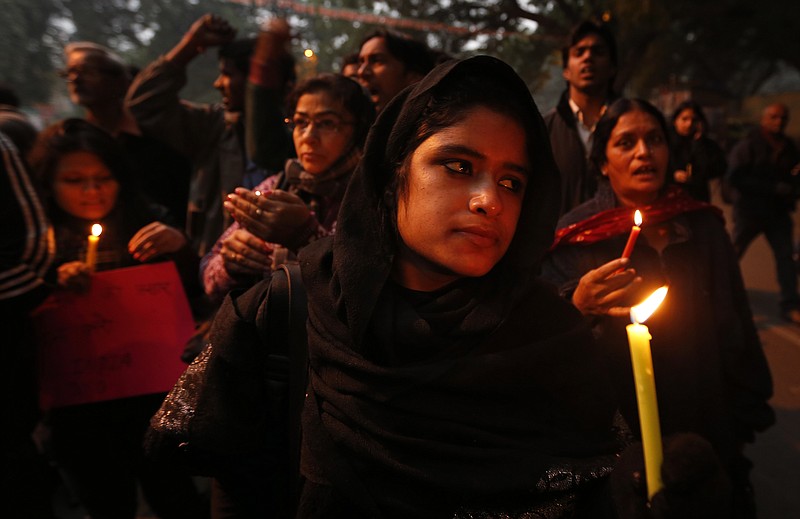SINGAPORE (AP) - A young Indian woman who was gang-raped and severely beaten on a bus in New Delhi died Saturday at a Singapore hospital, after her horrific ordeal galvanized Indians to demand greater protection from sexual violence that impacts thousands of women every day.
She "passed away peacefully with her family and officials of the Indian embassy by her side," said Dr. Kevin Loh, the chief executive of Mount Elizabeth hospital where she had been treated since Thursday. "The Mount Elizabeth Hospital team of doctors, nurses and staff join her family in mourning her loss," he said in a statement.
He said the woman had remained in an extremely critical condition since Thursday when she was flown to Singapore from India. "Despite all efforts by a team of eight specialists in Mount Elizabeth Hospital to keep her stable, her condition continued to deteriorate over these two days. She had suffered from severe organ failure following serious injuries to her body and brain. She was courageous in fighting for her life for so long against the odds but the trauma to her body was too severe for her to overcome."
The woman and a male friend, who have not been identified, were traveling in a public bus after watching a film on the evening of Dec. 16 when they were attacked by six men who took turns to rape her. They also beat the couple and inserted an iron rod into her body resulting in severe organ damage. Both of them were then stripped and thrown off the bus, according to police.
Indian police have arrested six people in connection with the attack, which left the victim with severe internal injuries, a lung infection and brain damage. She also suffered from a heart attack while in the hospital in India.
Indian High Commissioner, or ambassador, T.C.A. Raghanvan told reporters that the scale of the injuries she suffered was "very grave" and in the end it "proved too much.
He said arrangements are being made to take her body back to India.
The frightening nature of the crime shocked Indians, who have come out in the thousands for almost daily demonstrations, demanding stronger protection for women and death penalty for rape, which is now punishable by a maximum life imprisonment. Women face daily harassment across India, ranging from catcalls on the streets, groping and touching in public transport to rape.
But the tragedy has forced India to confront the reality that sexually assaulted women are often blamed for the crime, which forces them to keep quiet and not report it to authorities for fear of exposing their families to ridicule. Also, police often refuse to accept complaints from those who are courageous enough to report the rapes and the rare prosecutions that reach courts drag on for years.
After 10 days at a New Delhi hospital, the victim was brought to the Mount Elizabeth hospital, which specializes in multi-organ transplant. But by late Friday, the young woman's condition had "taken a turn for the worse" and her vital signs had deteriorated. It was clear then that she would not survive long.
Indian attitudes toward rape are so entrenched that even politicians and opinion makers have often suggested that women should not go out at night or wear clothes that might be seen provocative.
Other politicians have come under fire for comments insulting the protesters and diminishing the crime.

